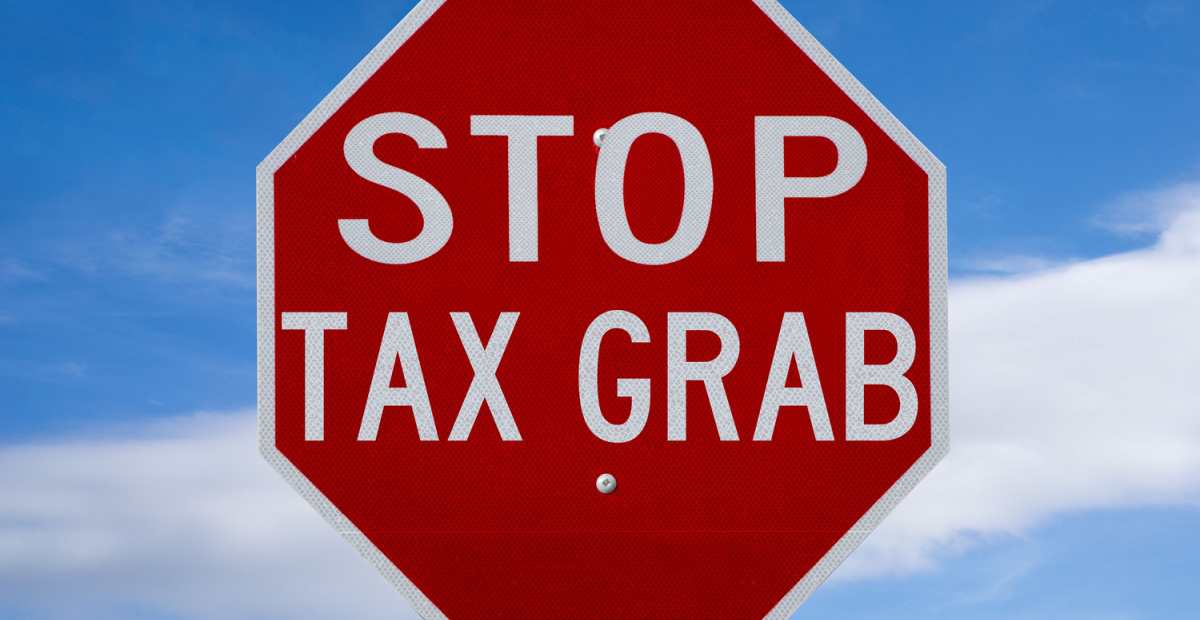Political hurdles mount to Govt’s $3m super cap

The Federal Opposition has reinforced its opposition to the Government’s $3 million superannuation cap and signalled the degree of difficulty it will have in passing the Senate.
In particular, the Opposition has signalled that it will be arguing that the Government is seeking to impose a tax on unrealised capital gains for the first time in Australia’s economic history.
West Australia Liberal Senator and former ministerial adviser, Senator Slade Brockman has told the Senate that the Government’s measure would explode the the principle that taxation policy should “not impose a burden on people who have already made decisions about their future under completely legal, legitimate arrangements”.
“If you have a property or artwork or some gold in your super fund that appreciates in value above the threshold, you have to pay tax on that, whether or not you have the cash available. That means that farmers who have put part of their farming property quite rightly and legally into a self-managed super fund will have to find the cash to pay Labor’s new tax if that farming property appreciates in value. They won’t necessarily have that cash liquid, so what then will they have to do? In order to come up with the cash to pay the tax office, to pay this Labor government, they’re potentially going to have to sell property. They will have to sell part of their farm to pay a tax bill. That is an outrageous impost.”
“This new Labor superannuation tax explodes that principle. It forces small-business people, particularly farmers, who are in this position to potentially have to sell assets in order to pay a tax bill on an unrealised capital gain,” Brockman said. “Nobody has made any money yet. It’s a book entry. It’s a piece of land that’s gone up in value from $1 million to $2 million.”
“Another example of something you could have as a small-business person in a self-managed superannuation fund is gold. We all know that gold is countercyclical. Gold can appreciate in value very quickly, particularly in difficult economic times. So if you were in that situation, where you had some hard assets like gold in a self-managed superannuation fund, and you suddenly saw a spike in values, you could have a significant, unrealised capital gain that you will then have to sell an asset to pay the tax on.”
“This should never have been brought forward as a realistic idea. It is completely contrary to every principle of good tax planning that Australia has followed for the last 100 to 120 years,” Brockman said.
“You do not tax a profit on paper. You tax a profit when it is realised—when that property is sold or when that gold is sold. You do not tax people for an increase in the value of an asset, particularly when that asset is being put aside for their future retirement. This is a policy that should never see the light of day.”











Sure it’s badly designed implementation but it’s good & fair policy.
Bad policy was getting rid of RBLs that caused the tax free leak on massive Super balances.
Why should an individuals Super account be completely tax free with $5mill, $10mill, $50mill, $100mill and more?
It shouldn’t, simple.
There are caps on how much to put in.
Every super balance is there because of the prevailing laws at the time. Not one of them broke the prevailing law by making an excess contribution.
RBLs were awful – do you remember how long it took to get an RBL determination?
Yes not saying anyone broke the law. But the law needs to be fixed.
Getting rid of limits on Tax Free Super Pensions / RBL extinction was stupid policy.
Yes RBL’s were a nightmare, so too are TBC & TSB’s, etc.
Our moronic Govts & Treasury designed Super system is world record over complexity.
But at least we has a massive pool of Super Savings to help fund an aging population.
Anyone with $5mill, $10mill, $50mill, $100mill and more in a concessionally taxed Super environment doesn’t need or deserve ongoing tax breaks.
From 2007 to 2017 they benefited massively with unlimited balances in Tax Free Super Pensions.
And they continue to benefit with concessionally taxed big bucks.
These oh so poor souls should pay more tax.
Taxing unrealised Gains is not the answer, but the policy is right. As usual Govt & Treasury will stuff up the implementation.
Super accounts are not tax free. Investment earnings are taxed at 15% and we already have limitations on how much can be contributed.
Why should Super balances of $5mill, $10mill, $50mill, $100mill or more be concessionally taxed at only 15% ???
Over and above the already Tax Free Super Pensions of at least $1.6 mill each.
The imposition of tax on large balances are not the issue here. It is the design of the calculation methodology, that disproportionately impacts members of SMSFs, that is a BIG issue.
There were plenty of ways this could have been better designed but, as the number impacted is “low”, the government feels it can get away with it. If they get away with poor policy design now, that creates a precedent for future, bad policy design.
The 2017 capping of super was a dramatic departure from the tax impost on super. Like all structural changes in super, the impact is cumulative and, in the case of the 2017 changes, needed time to work through the system. In 10 or so years, there won’t be super balances of $100m etc, the compulsory cashing rules on death will see to that.
The reality is, the government has a structural deficit thanks to COVID largess (remembering that the ALP wanted JobKeeper to extend to everyone. Thankfully that didn’t happen as the budget would be in a worse mess now). The Budget construction needed the ALP to make good on its election promises, but at the same time, make some progress on the deficit so Australia’s credit rating wasn’t down-graded. This poorly designed new tax was a way of bolstering the forward estimates. If it was anything more, the $3m threshold would have been subject to indexation, etc.
If you put the new tax design into another investment asset such as residential property, I expect a lot more people would understand just how unfair this is. As it stands people seem to think this affects only the super wealthy, so who cares. The mum and dad rental property investors would understand what taxing unrealised gains was all about if a new tax is applied to their nest egg. If ALP gets away with the super tax as is, they could come after other investment assets. The new head of the Productivity Commission likes the idea of taxing unrealised gains so – look out.